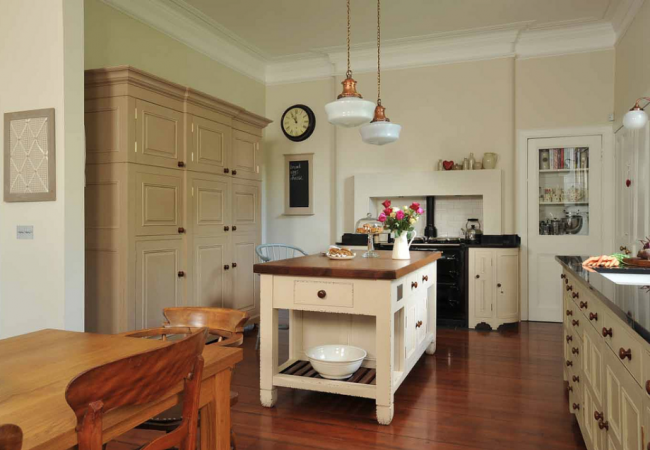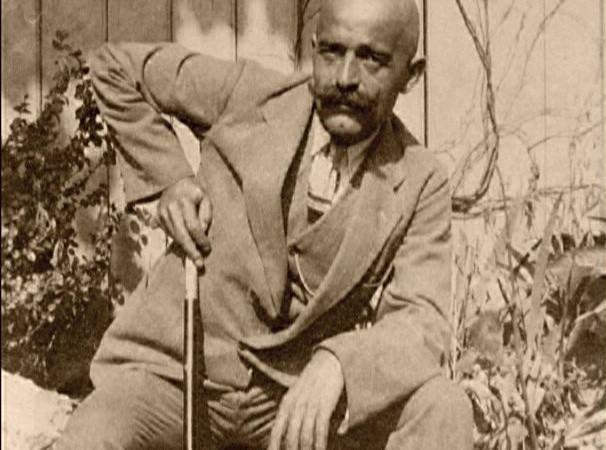What shall a machine think when artificial intelligence comes to be? Wipe out humanity, make us slaves, or simply be? I put forth an argument for why the machine may be more spiritual than we believe it is capable of.

Why you need to turn your product into a service before it’s too late
“Why don’t you open a shop in London?”
I’m often asked this.
Rarely do I tell the truth.
To open a shop selling ready-to-wear suits, or simply products, would be a step backwards. Here’s why:
The future is bespoke. And by that I mean products will become services.
- It’s why Nike created Nike+
- How Amazon isn’t just a shop but a fully-fledged personal shopping assistant with same-hour delivery.
- Metrobank didn’t become the fastest growing High Street bank by having a better product, it won because the staff remember your name, it’s open seven days a week and the call centres are based here, in the country
- The internet of things too: your fridge ordering food for you. Loo rolls that re-order themselves. Homes that are intelligent.
The reason is simple: consumerism is about buying identity. And that hasn’t worked, so now it’s changing.
In the face of infinite choice and everything becoming disposable, consumerism has changed.
Zygmunt Bauman, the sociologist and coiner of the term ‘liquid life‘, explained how consumerism and the attempt of ownership was our generation’s way of gaining identity. We bought stuff to make ourselves individual.
Monkey Shoulder, the whisky brand, was created on this premiss.
Of course the irony of it, the inborn aporia, is that the quest for being an individual is a contradiction.
Individuality is a task set for its members by the society of individuals – set as an individual task, to be individually performed, by individuals using their individual resources. Yet such a task is self-contradictory and self-defeating: indeed, impossible to fulfil.
Which is why we buy more stuff.
If consumerism worked, namely, if buying stuff gained us a permanent identity, we wouldn’t need to buy any more. But we did and we do.
The only core identity that can arise from consumerism is that of constantly choosing. Not having chosen, but choosing. Homo eligens.
Constantly choosing is the closest we can get to permanence (in our consumerist society, at least). And, as P. D. Ouspensky touted in the spiritual must-read guidebook, The Fourth Way, happiness and freedom is found in developing a permanent-self.
Bespoke services are the natural evolution of failed consumerism
Bespoke means to be-spoken. To choose. To have voice. And if the act of choosing is what gives us our greatest sense of identity, then offering a bespoke service offers greater value. People like it.
It could be as simple as choosing the strap of your Apple Watch or the type of body you want to achieve at your gym. That you were able to choose is where the satisfaction came from [note I said satisfaction, not happiness].
If you had the choice between a fully bespoke suit, where you got to choose the cloth and the style, and then it was made to fit you perfectly, OR, from a limited range in a shop – what would you choose?
You’d go for the bespoke because there’s more choice. And consumerism is all about choosing.
Technology is enabling products to be services, but there are some things for which face-to-face will always win
Technology means I can now order a made-to-measure shirt from my iPhone, or use Genee to schedule meetings for me.
Yet there are things for which face-to-face will always win. Things that concern love.
Love is at the root of all humanity. As blogger Maria Papova wrote,
We have applied to it our finest definitions; we have examined its psychology and outlined it in philosophical frameworks; we have even devised a mathematical formula for attaining it. And yet anyone who has ever taken this wholehearted leap of faith knows that love remains a mystery — perhaps the mystery of the human experience.
Thich Nhat Hanh, a Vietnamese Zen Buddhist Monk, teacher and peace activist shared the idea that “understanding is love’s other name”.
And if we take Nhat Hanh’s idea and swap ‘love’ with ‘understanding’, we can see how any service that involves a person listening to and understanding the customer shall always be superior to technology (so long as the choices offered are the same).
For to love and be loved is the strongest instinct we inhibit whether that’s in a consumerist society or otherwise. Swap that for ‘to understand’ and ‘be understood’, and you can see how powerful a bespoke service really is.
Image – Chalon kitchen, via Flickr


